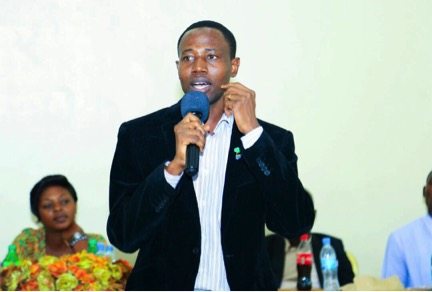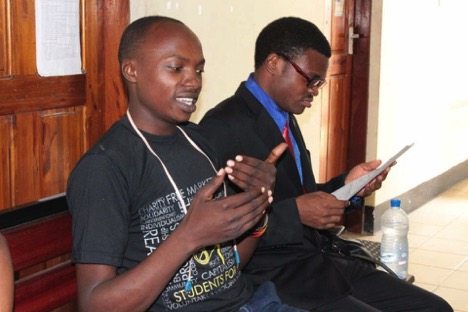“We must use our knowledge and skills acquired from school to transform the society from our local communities. Successful people never complain; they always grab opportunities and share them with others.” —David George (Participant, GPF Tanzania youth forum)
In an increasingly complex world, quality leadership is more imperative than ever. Innovation in every field has to happen quickly to keep up and businesses are learning that the ability to innovate is only one part of the key to a prosperous society.
The World Economic Forum calls having a moral compass as “the most overlooked leadership skill.” Youth entering the workforce are learning that leadership is not just about practical duties and privileges; it’s also about addressing ethical dilemmas and understanding the moral responsibilities that come with positions of greater influence.
In Tanzania, youth make up more than 60% of the entire population, making developing their leadership capacity an essential part of the economic development of the country in the years to come.

Joel Nanauka talks about moral leadership with Tanzania youth
“Corruption is a global threat. It is a serious roadblock to economic development,” said Yury Fedotov, Executive Director of the United Nations Office on Drugs and Crime (UNODC) since 2010. “Corruption aggravates inequality and injustice, and undermines stability, especially in the world’s most vulnerable regions.”
Youth volunteers and ambassadors with Global Peace Foundation have made tremendous strides to counter youth involvement in violent conflict, whether ethnic, religious or political, by organizing events and workshops to develop moral and innovative leadership capacities in Tanzania’s young people.
Over the last year alone, these volunteers provided an open platform for youth to interact and learn about practical leadership, academic and entrepreneurial skills with facilitators who are experts in their field. The forums allowed youth to look beyond their immediate circumstances and obtain the knowledge and motivation to contribute to their communities and foster peace to reverse the cycle of youth involvement in violent extremism.
Authenticity in moral leadership: Young people lend their voice
Joel Nanauka is one such leader who supports the GPF Tanzania campaign Vijana Na Amani (Youth and Peace) through trainings on moral leadership. “Leaders are role models,” said Joel, “If you want your organization or initiative and those who work in it to behave ethically, then it’s up to you to model ethical behavior. A leader and an organization that has a reputation for ethical behavior can provide a model for other organizations and the community.”
Fatuma Abdallah, a student from Open University who participated in a Tanzania youth forum, said, “After today’s session, I am very motivated to work on my leadership skills to become a near future moral leader. I will also encourage others to do the same.”

Dickson Kamala explains youth radicalization in Tanzania
Antony Luvanda, a speaker from Tony Inspirational Talk, participated in the GPF Tanzania forums to explain the importance of personal branding as youth leaders. More than just holding up an image of oneself, a moral leader has the responsibility to uphold authenticity, not just talking the talk but walking the walk. “We all have attitudes and beliefs about brands based on our experiences. The strongest brands are powerful, authentic, consistent, visible, valuable; the same qualities apply to personal brands. Your brand is what other people say about you when you’re not in the room,” said Antony.
Ownership over a personal brand means youth have greater control over their own destinies, maximizing their career potential while standing by their responsibility to be ethical leaders. Having youth focus on leadership and responsible citizenship means there is a higher likelihood they will set goals to contribute to a greater good after finishing school, rather than participating in violence or crime.
Raising moral leaders through service
GPF Tanzania also hosts community service projects that draw hundreds and thousands of youth each year. “Volunteering can have benefits for your personal development,” said Dickson Kamala, an ambassador for GPF Tanzania, “It builds self-esteem and confidence as you are experiencing a sense of achievement and personal satisfaction from being a part of something meaningful, helping others, and seeing the positive results of the work carried out.”
Youth in Tanzania who participate in these events feel empowered to make a difference. David George is one participant who was moved to help mobilize youth to change their mindsets on life. “We must use our knowledge and skills acquired from school to transform the society from our local communities. Successful people never complain; they always grab opportunities and share them with others.”
The original post appears on Global Peace Foundation. Dr. Hyun Jin Preston Moon is founder and chairman of the Global Peace Foundation.

